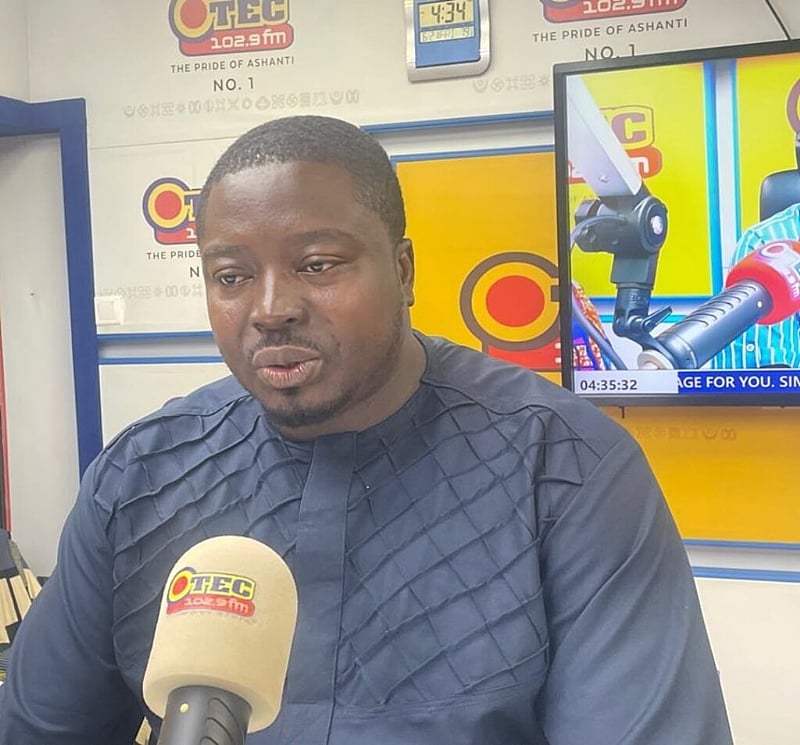The escalating tensions within Ghana’s Parliament have sparked concerns from various quarters, particularly following an incident involving the suspension of three Minority members. Hon. Kwabena Boateng, the Member of Parliament for Ejisu, has voiced his disapproval of the Majority’s handling of the situation, characterizing their actions as disrespectful and potentially detrimental to the smooth functioning of the legislative body. He argues that the Majority’s disregard for the Minority not only undermines the principles of democratic governance but also sets a dangerous precedent for future parliamentary proceedings. This incident, which stemmed from a disagreement during the Appointments Committee’s proceedings, illustrates a growing rift between the two sides, raising questions about the future of bipartisan cooperation in the Ghanaian parliament.
The crux of Hon. Boateng’s argument lies in the principle of mutual respect and collaboration, which he believes is essential for effective governance. He contends that the Majority’s unilateral decision to suspend the three Minority members, without due process or consultation, demonstrates a lack of respect for the Minority’s role and voice within Parliament. He further emphasizes that such actions create an environment of distrust and animosity, making it difficult for both sides to engage in constructive dialogue and reach consensus on critical national issues. This lack of respect, according to Hon. Boateng, not only undermines the integrity of Parliament but also threatens the stability of Ghana’s democratic system.
The Ejisu MP’s call for unity underscores the gravity of the situation and the urgent need for a course correction. He urges Members of Parliament from both sides of the aisle to recognize the potential consequences of this escalating tension and to work together to restore a sense of decorum and mutual respect within the legislative chamber. He stresses that the current trajectory of disregard and antagonism is unsustainable and will inevitably lead to further chaos and dysfunction. The long-term implications of such a breakdown in parliamentary processes could be severe, potentially hindering the government’s ability to effectively address the nation’s challenges.
The incident involving the suspension of the three Minority members serves as a microcosm of the broader challenges facing Ghana’s Parliament. It highlights the growing polarization within the political landscape and the erosion of bipartisan cooperation, which are essential for effective governance. Hon. Boateng’s concerns reflect a broader sentiment among many Ghanaians who are worried about the increasing partisan divide and its potential impact on the country’s democratic institutions. The incident underscores the need for a renewed commitment to dialogue, compromise, and respect for differing viewpoints.
The future of Ghana’s Parliament hinges on the ability of its members to overcome these challenges and forge a path towards greater collaboration. Hon. Boateng’s call for unity is not merely a plea for civility but a call to action for all Members of Parliament to uphold their constitutional duties and work together for the betterment of the nation. The incident and the subsequent reactions highlight the importance of establishing clear protocols and procedures for addressing disagreements and resolving conflicts within Parliament. A robust framework for dispute resolution is crucial for ensuring that future disagreements are handled in a fair, transparent, and respectful manner.
Moving forward, it is imperative for all stakeholders, including the Speaker of Parliament, the Majority and Minority leaders, and individual MPs, to take concrete steps to de-escalate the tension and foster a more collaborative environment. This requires a commitment to open communication, genuine dialogue, and a willingness to find common ground. The Speaker of Parliament, as the impartial arbiter of the House, has a critical role to play in ensuring that parliamentary proceedings are conducted in a fair and respectful manner, and that all members have an equal opportunity to express their views. The incident involving the suspension of the three Minority members should serve as a wake-up call for all stakeholders to address the underlying issues that contribute to the growing polarization within Parliament and to work towards building a more cohesive and effective legislative body. The future of Ghana’s democracy depends on it.














